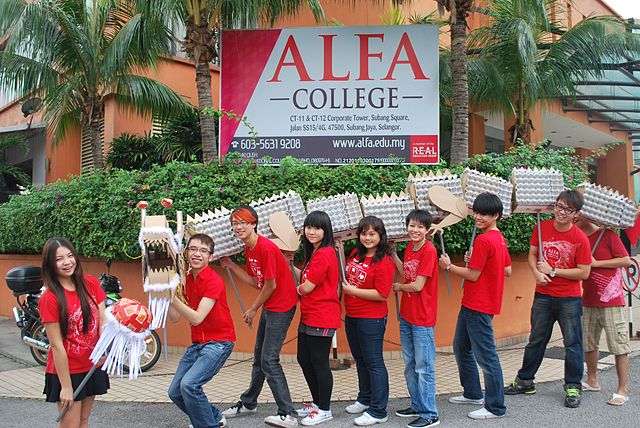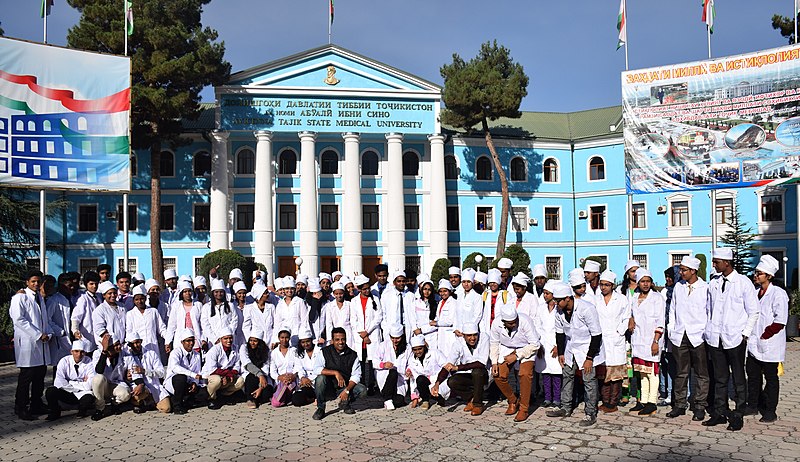
On Wednesday, 28 July 2021, Thammasat University students are cordially invited to join a free Zoom webinar on comparing the transition of returning scholars to domestic research environments in Kazakhstan, Malaysia and Cambodia.
The Thammasat University Library collection includes several books about different aspects of society and education in Kazakhstan, Malaysia, and Cambodia.
The event is organized by the Department of Education, the University of Oxford, the United Kingdom and will begin at 9pm Bangkok time.
The speaker will be Associate Professor Aliya Kuzhabekova, who teaches at Nazarbayev University, an autonomous research university in Nur-Sultan, the capital of Kazakhstan.
As the event website explains, in this talk, Associate Professor Kuzhabekova
will report on the results of a collaborative project exploring how individuals, who received Ph.D. degrees abroad transition to research environment in their home countries.
In particular, the aim of the comparative study was to develop a better understanding about how returnees, who obtained degrees in countries with high levels of research capacity re-integrated in the research environment of countries with lower levels of research capacities.
In addition, the project team tried to reveal the extent to which the returnees served as change agents transforming the research environment in their countries. The study allowed to obtain comparative insights about cross-country and program-related variations in the returnees’ adjustment experiences.
The event is organized by Dr. Maia Chankseliani of the University of Oxford:
Maia Chankseliani is Associate Professor of Comparative and International Education and pathway leader for MSc in Comparative and International Education. She convenes the Comparative and International Education Research Group in the Department.
Maia’s research on tertiary education – higher education, university-based research, and VET/apprenticeships – focuses on the understanding of the societal, institutional, and policy forces that shape tertiary education and the potential of tertiary education and research for transforming societies. Methodologically, she moves between qualitative and quantitative methods. She often complements secondary data analysis with narratives from semi-structured interviews and contextualised case studies.
Maia brings to her role experience of education research, teaching, policy-making, leadership, and consultancy in different international contexts. She holds BA in Philology from Tbilisi State University (Georgia), Ed. M in International Education Policy from Harvard University (USA), and PhD in Education from the University of Cambridge (UK)…
For further information or with any questions, kindly write to this email address: communications@education.ox.ac.uk
Students may register for the Zoom webinar at this link:
https://zoom.us/meeting/register/tJYvdu2orTwtG9TLijkeaQdyVWvMTRM4ZoA7
In August 2019, an academic research article coauthored by Associate Professor Kuzhabekova was published, Returning from study abroad and transitioning as a scholar: Stories of foreign PhD holders from Kazakhstan.
Its abstract follows:
The article reports the results of an interview-based study exploring how international PhD holders re-integrate into the research environment in Kazakhstan. One of the main results consistent with prior studies is that returning scholars face poor access to international and domestic scholarly societies. Interaction with external peers is problematic due to insufficient funding available for conference participation. Lack of communication with the domestic scholarly community is related to its inaccessibility for junior researchers, as well as to its propensity to operate as an informal network of senior scholars controlling the protectionist distribution of funding and exerting influence on administrative and policy decision-making in academia. To counteract the informal networks, returning scholars get organized into alternative informal networks aimed at information exchange, mutual support and lobbying of interests. This transformative activity of junior scholars cannot be explained with the dominant structural theories in the existing research. An alternative Agency Theory interpretation is considered.

Increasing academic research is examining the motivations and choice of scientists and others who study abroad but return home for their professional careers.
An article in Nature from February 2019 addressed this issue.
The same month, another online article asked,
Why are researchers increasingly returning to their homeland?
For decades, developed countries in the West have been the hubs of scientific and technological advancement, attracting talent across the globe. Scientists in pursuit of better opportunities for career advancement considered the U.S., in particular, the ultimate destination to realize their academic aspirations. Most of the scientific immigration from the East, therefore, was toward the West. The talent pouring into the Western countries gave a boost to their economy and technology and helped them advance at an unprecedented rate. In recent years, however, there has been a rapid shift in this historical pattern.
With the increasing global economic competitiveness and the growing realization of the importance of scientific and technological advancement to a nation’s progress, developing nations are eager to regain their expatriated talent. Moreover, issues such as diminishing science funding and political turmoil in the U.S. and the U.K. have only made it difficult for these developed countries to retain immigrated scientific workforce.
A shift in the global R&D hotspots
Developing economies such as China and India are making rapid strides in science and technology. China, in particular, has established itself as one of the leading global scientific nations, giving the U.S. fierce competition. To entice young Chinese researchers back to their homeland, the Chinese government has launched a talent recruitment program called the Thousand Talents Program…
In a similar vein, the government of Philippines renewed its efforts to persuade Filipino scientists to return to their home country by promising help to set up labs and provide better infrastructure. According to the government, it needs to “bring research expertise back home to solve some of the country’s most pressing problems, such as climate change.
One of the countries that have witnessed a major exodus of talent over the years is India. For decades, Indian researchers have preferred to migrate abroad, the U.S. in particular, in search of greener pastures. This loss of human capital, which is vital for economic development, has forced the Indian government to think of ways to reverse this trend. Programs such as Visiting Advanced Joint Research Faculty (VAJRA) have succeeded in urging Indian researchers to pursue research opportunities in India.
What makes researchers return to their roots? One of the reasons most compelling reasons is the availability of similar, if not better, opportunities as in the countries they have gained experience in. As countries around the globe in general and developing economies, in particular, are expanding their science budgets, considering a move back may appear to be a reasonable option for researchers. Moreover, researchers who return find it relatively easy to set up their career and find funding since they are sought out by the government.
Apart from attractive opportunities, some researchers are motivated by the idea of contributing to the progress of their homeland. Well-known structural biologist Arun Shukla who studies membrane proteins has several permanent positions to choose from across the world. He, however, chose to return to India – his home country – and set up his own lab. Although India is not at par with some of the countries Shukla has worked in, especially with regard to R&D expenditure or technical infrastructure, he was “determined to put the country on the map for his niche speciality of membrane-protein biology.”
Factors related to culture and language also play an important role in decisions regarding mobility. Several researchers feel the need to be closer to their roots and the availability of good opportunities in their home country further influences their decision to return…

(All images courtesy of Wikimedia Commons)
